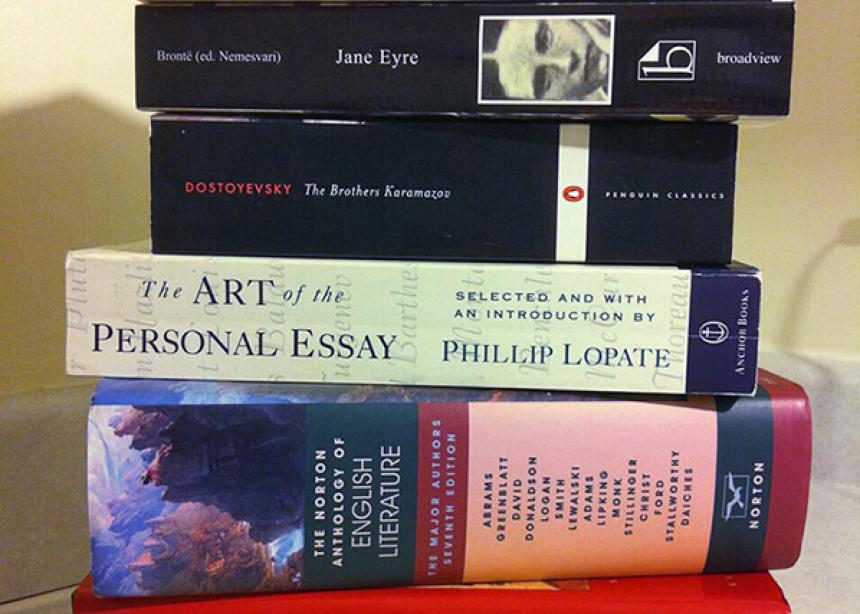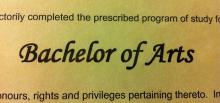I paid for my undergraduate degree with scholarships and my own savings, and graduated without student debt. I am touchy about this. I tell anyone listening about how expensive it was, how I kept my grades high and earned scholarships, what weird part-time work I did and the imaginative ways I found to save money. I’m proud of myself, and I want other people to recognize the hard work and sacrifice that went into this achievement.
However, it’s important for me to acknowledge that I was set up to succeed. My parents let me live at home while I worked for a year after high school. They enabled me to save almost everything I earned and provided transportation to jobs I was lucky to have. My grade school education took place at home, where I studied what I loved and spent my time on things that interested me. I began university more prepared than most, thanks to a grade school education that taught me to be self-motivated, organized, and engaged.
By accidents of birth, I have a natural scholastic aptitude for earning high grades with less effort and time investment than some of my peers. I had a perfect on-campus job that employed me for three summers. I live in Alberta, a province where student funding is plentiful and where post-secondary education is heavily subsidized by the government. I have no restricting physical limitations. I do not suffer from debilitating mental illness. I did not encounter significant bias or prejudice based on my religion, gender, sexual orientation, socioeconomic class or race.
In other words, I didn’t start at the bottom. As I have considered what my faith means for the way I live, it has struck me that Jesus was concerned most about the people society views as being at the bottom. However proud I am of my accomplishments, I have never been there myself. Privilege enabled me to achieve what I did. My effort was just one of the variables that contributed to my success.
I’m still proud of what I achieved, because it was difficult. But trumpeting my own accomplishments doesn’t make me a more encouraging, life-giving person. I must recognize the ways in which I was set up to succeed and look for ways to set others up to succeed. Had I been set adrift on my own at 18, grown up in the foster system, faced crippling tuition fees, struggled with a learning disability, dealt with a chronic illness, or been an immigrant who needed to learn English, my situation would look much different.
If I could brag to Jesus about my accomplishments, I’m not sure he would pat me on the back and praise me to the skies. Rather, I wonder if he would say, “Yes, these are gifts I gave you. These victories that you claim are victories I helped you earn. How will you help those who do not have the same gifts? How will you use what I have given you to reach down to those at the bottom and lift them up?”
I have come to believe that my faith ought to be evident not so much in what I believe, but in who I stand behind. I suspect that my theology, my cognitive stance on atonement, hell, creation, resurrection, sin or grace is inconsequential if it does not impact the way I live. I used to think that my faith should be most evident by what I say and argue, by the ideas I support. Now I think, instead, that the primary expression of my faith should be the people I support.
When Jesus said to take care of the orphan and the widow, I think he meant: take care of the powerless, the marginalized, those who cannot create the same kind of life for themselves that I have created for myself. God has not given me intelligence or wealth or ambition or capability or physical and mental health or privilege so that I can crow about my good fortune. He has not given me faith communities who love and value me so that I can keep that support and security for myself.
The idea of privilege is not meant to undermine the value of what the fortunate have accomplished. Rather, it is meant to remind us that there are those who have to work back-breakingly hard to draw level with us at the place we began. It should inspire us to be grateful that the world caught us gently.
Amy Matychuk, 24, has a BA in English literature from Ambrose University. She lives in Calgary, Alta., where she attends Foothills Mennonite Church and studies law at the University of Calgary.






Add new comment
Canadian Mennonite invites comments and encourages constructive discussion about our content. Actual full names (first and last) are required. Comments are moderated and may be edited. They will not appear online until approved and will be posted during business hours. Some comments may be reproduced in print.